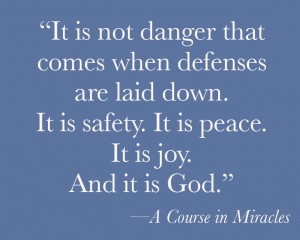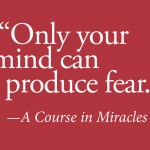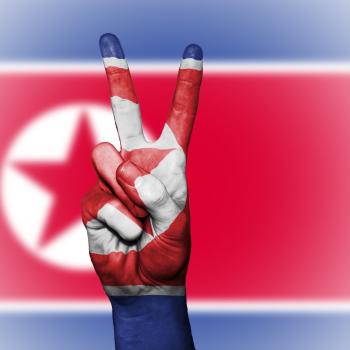 Every once in a while you read something that makes your head spin like a Looney Tunes character. It happened to me a few years ago when I was reading about Kathryn Koob (pronounced Kobe), a diplomat who was taken hostage in the American embassy in Tehran in 1979.
Every once in a while you read something that makes your head spin like a Looney Tunes character. It happened to me a few years ago when I was reading about Kathryn Koob (pronounced Kobe), a diplomat who was taken hostage in the American embassy in Tehran in 1979.
A part of that historic event came to life in Ben Affleck’s film Argo, about hostages who were rescued by the Canadian embassy. But 52 other Americans were held for a total of 444 days. Koob was one of them—just one of two women held for the entire time.
How did she get through it?
She took an ominous act of terrorism against the United States and “turned it into a spiritual retreat,” she said.
Cue the head-spinning.
In her book Guest of the Revolution, published three years after her release, Koob wrote: “The idea of a contemplative lifestyle intrigued me. “What would it be like? Here was my opportunity to find out.”
This may be one of the best examples of making champagne out of lake water that I’ve ever heard. But it’s also my favorite illustration of this passage from A Course in Miracles:
“It is not danger that comes when defenses are laid down. It is safety. It is peace. It is joy. And it is God.”
All of us would agree that Koob was in grave danger. She and the other hostages were threatened repeatedly with execution. They were blindfolded and marched through angry crowds that seemed just on the edge of chaos. The captors played Russian roulette with them and kept them in solitary confinement.
Night after night, the news showed militant Iranian students shouting “Death to America,” and newscaster Walter Cronkite soberly announced the number of days the hostages had been in captivity.
But based on her writings and interviews, it appears that Koob chose not to focus on the attack. Instead, she turned inside, deepening her relationship with Spirit and seeing how she could grow.
I think this has a lot to teach us about the whole debate over violence and gun control.
A Course in Miracles says that attack and defense are two sides of the same coin because they both come from our fearful ego mind. As the Course says, “No one walks the world in armature but must have terror striking at his heart.”
Attack can look all sorts of ways: bullying on the school bus, gossiping about a friend, not trusting your spouse, yelling at the customer service rep on the other end of the phone line. All of these have prompted physical violence, and all have originated in a fearful mind.
Defense can look a lot of ways, too: becoming withdrawn, becoming belligerent, making a counter-attack and keeping a gun under the mattress. All of these have prompted physical violence, and all have originated in a fearful mind.
But Koob…she took a different path altogether. She spent her mornings in prayer. When she could, she cooked for the other hostages, played checkers, made decorations for a Christmas tree, was respectful to her militant captors and took it a day—or even 15 minutes—at a time.
In my mind, she created peace in the eye of the storm because she didn’t focus on either defense or attack. In fact, she focused on an inner peace that allowed her to forgive. After her release, when asked if she was able to love her enemies, she said, “Well, I don’t know, but if the absence of anger, bitterness, hatred [and] resentment means love, then I guess I do.”
I think what Koob knows and the rest of us often forget is that we’re more than our bodies and our stuff—the two things that typically prompt us to attack and defend. As she says, “…people can be hostages in a lot of different ways. You can be held hostage if you lose a job, have a terminal illness or something goes wrong with a family relationship.”
Any of those can become our own personal captivity—not because the situation imprisons us, but because we choose to experience it as an attack.
Koob elected to see her hostage crisis differently. In a newspaper interview, she said, “The major thing for me was it was an opportunity to grow spiritually, because that is how I chose to use the time.”
What if we saw this as the ultimate approach to life? What if, no matter what’s going on around us, no matter how much danger the world seems to lay at our door, we welcomed each day—each 15 minutes, even—as an opportunity to grow spiritually?
Maybe, like Koob, we’d experience peace in the eye of the storm.
And maybe, by laying our defenses down, we’d be released from the ultimate hostage taker: our own fear-based thoughts.
Blessings,
Deb
Next in the series: “All anger is nothing more than an attempt to make someone feel guilty.”












